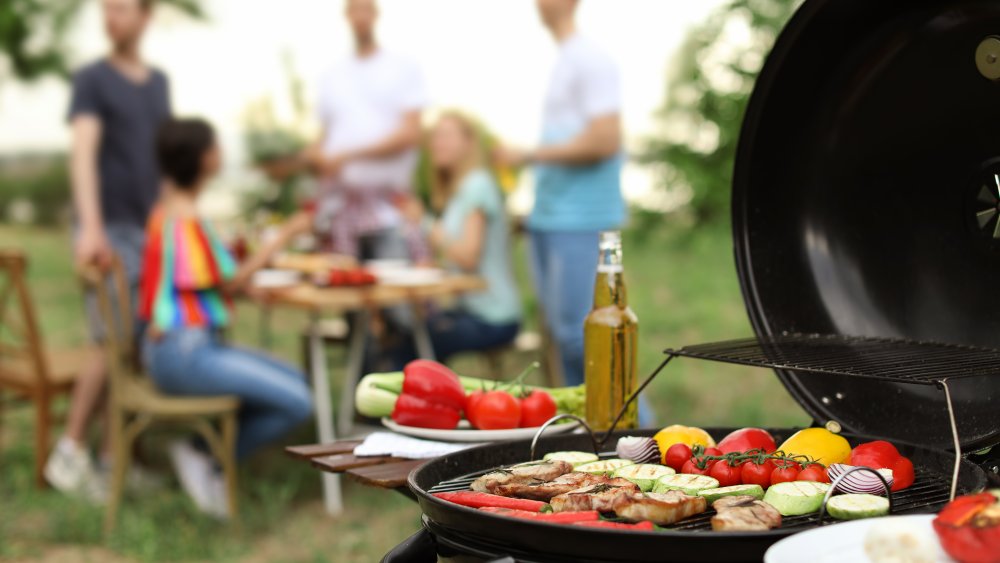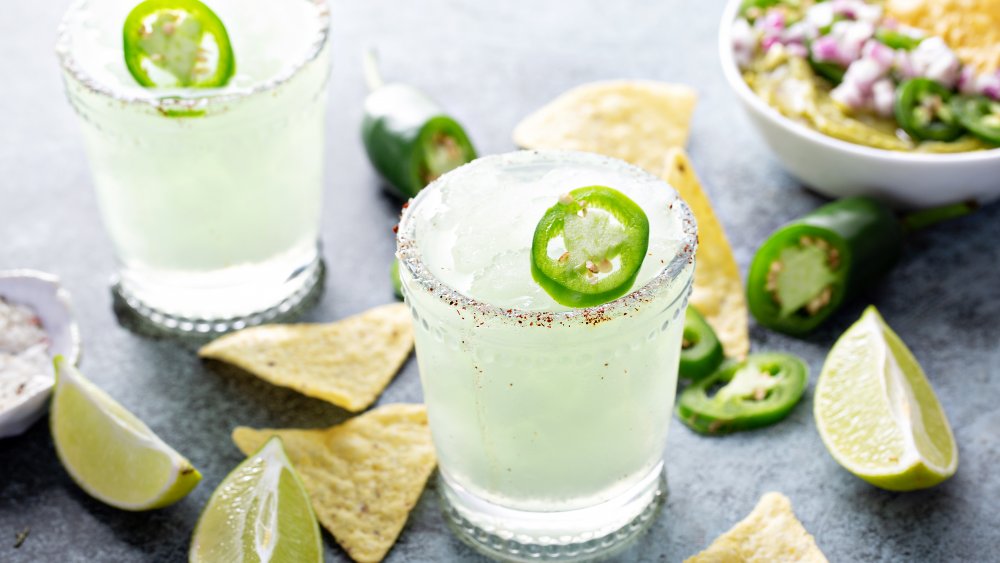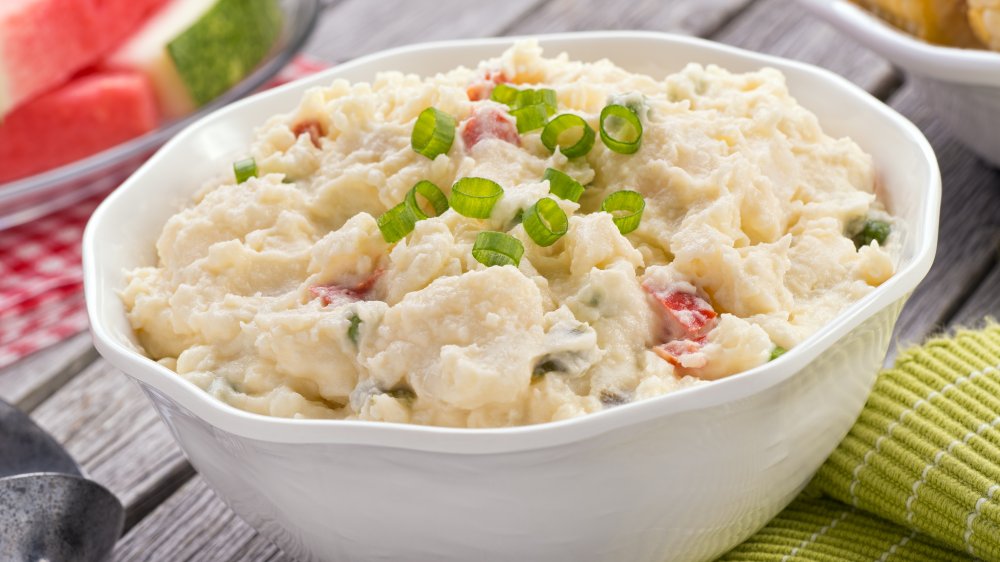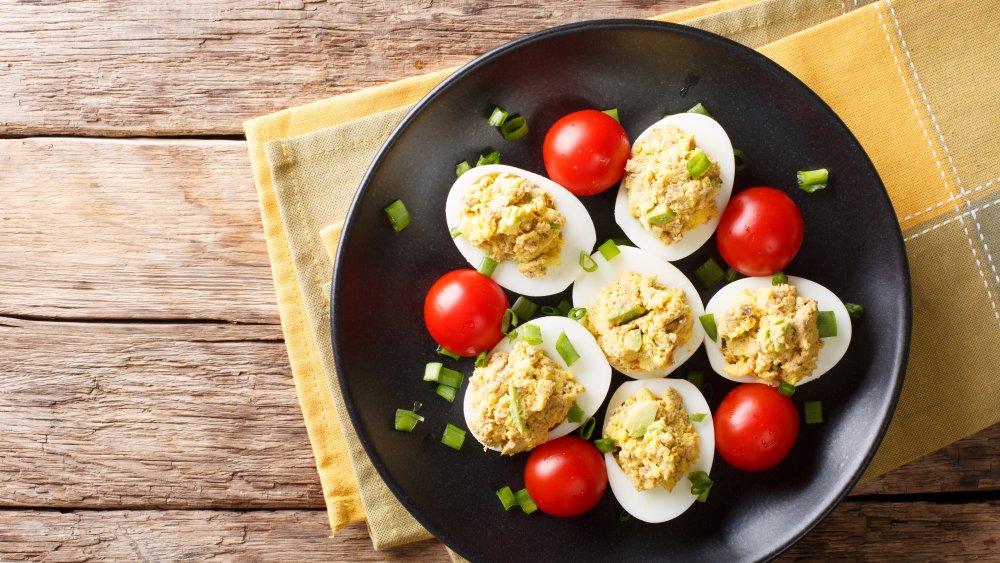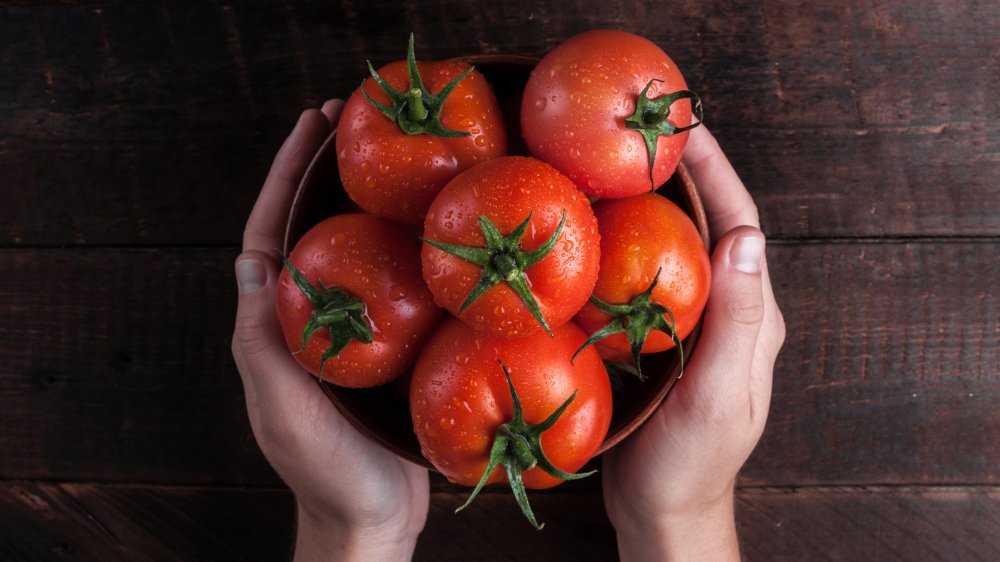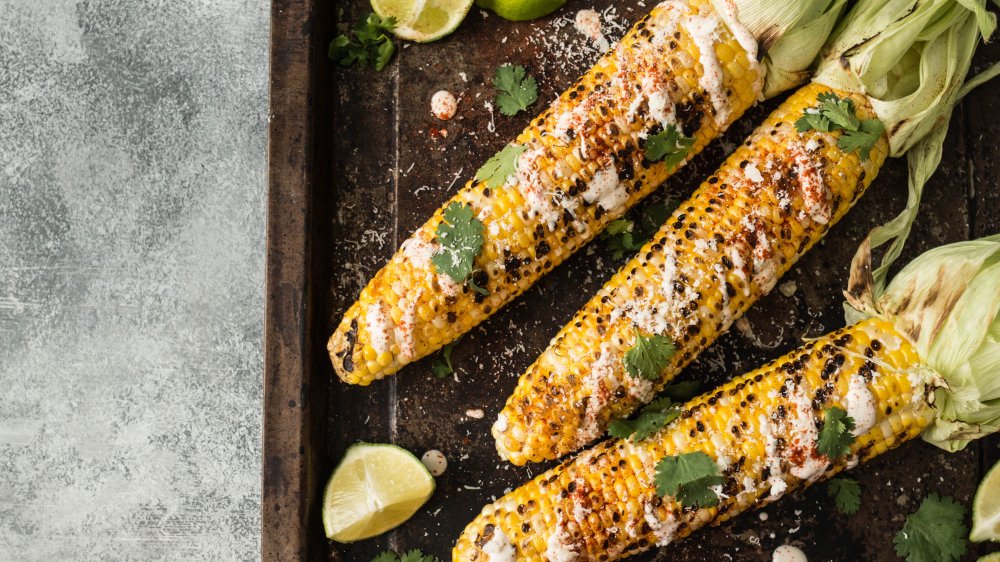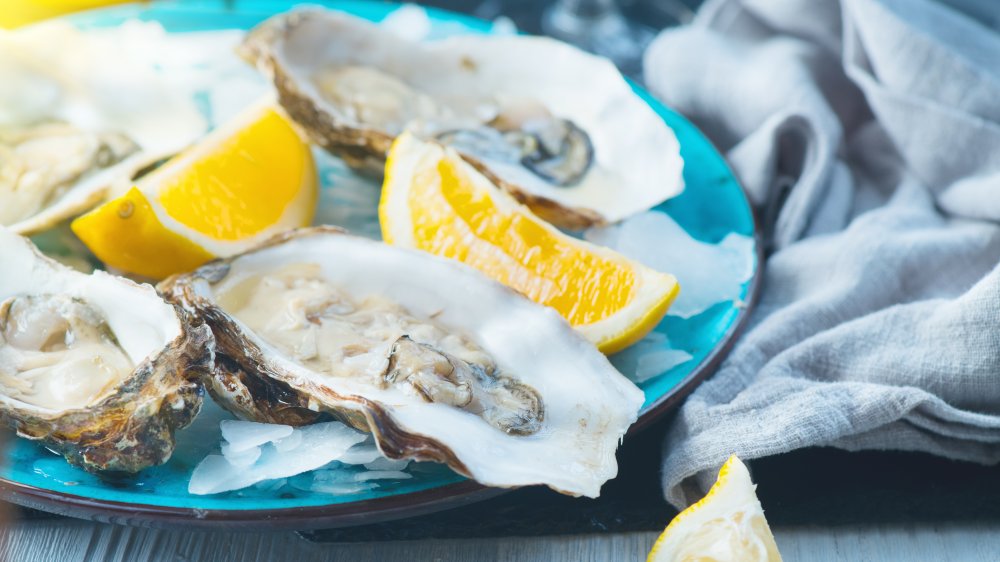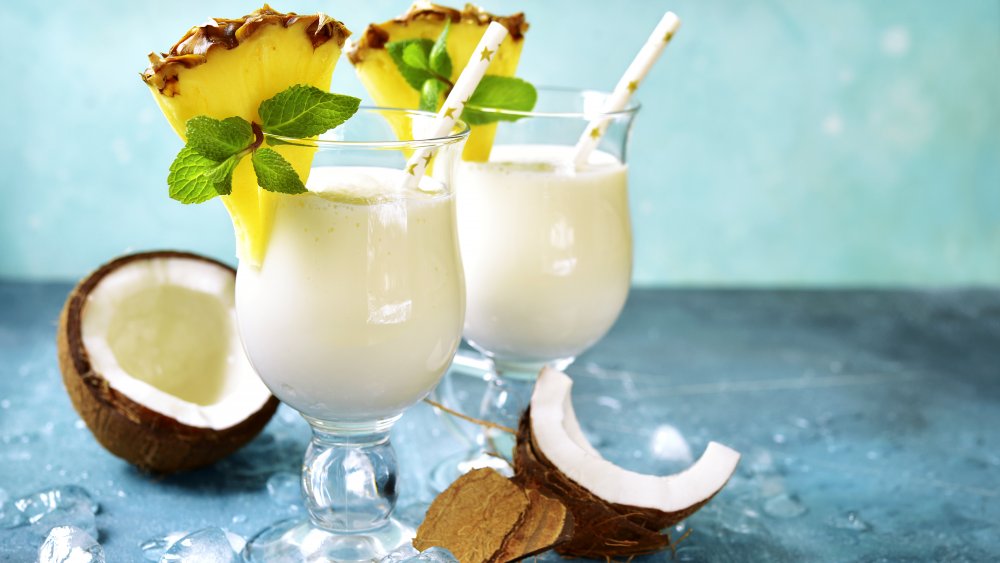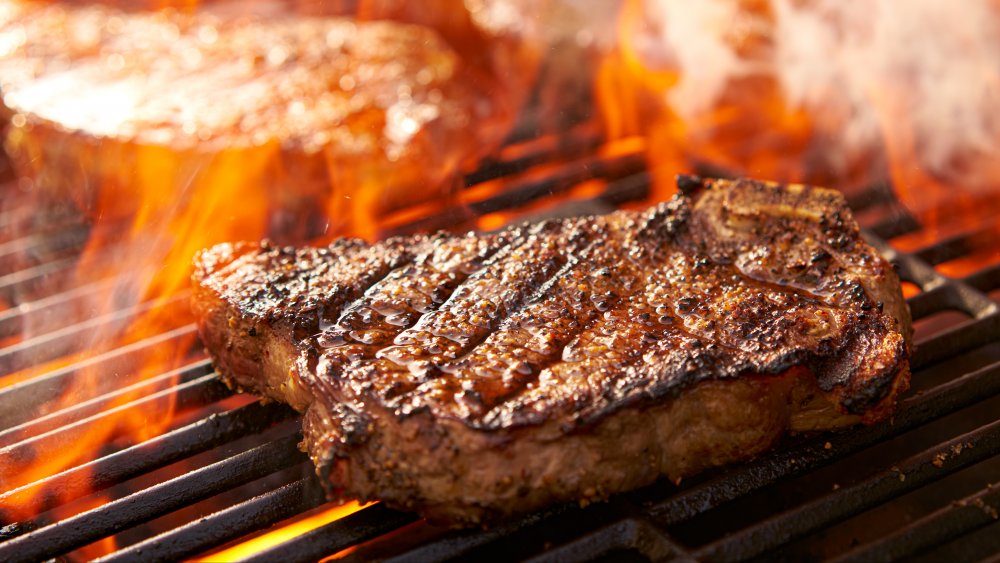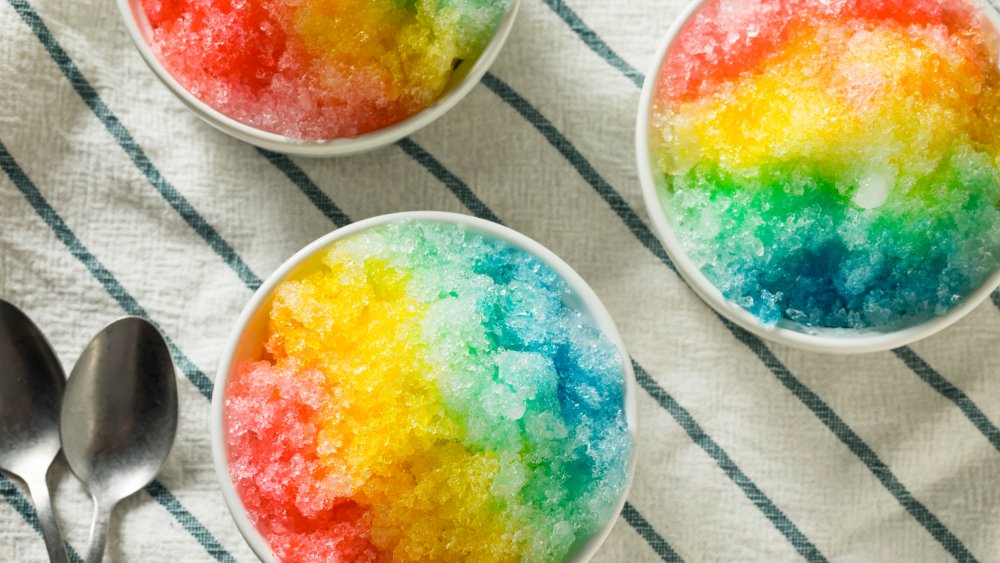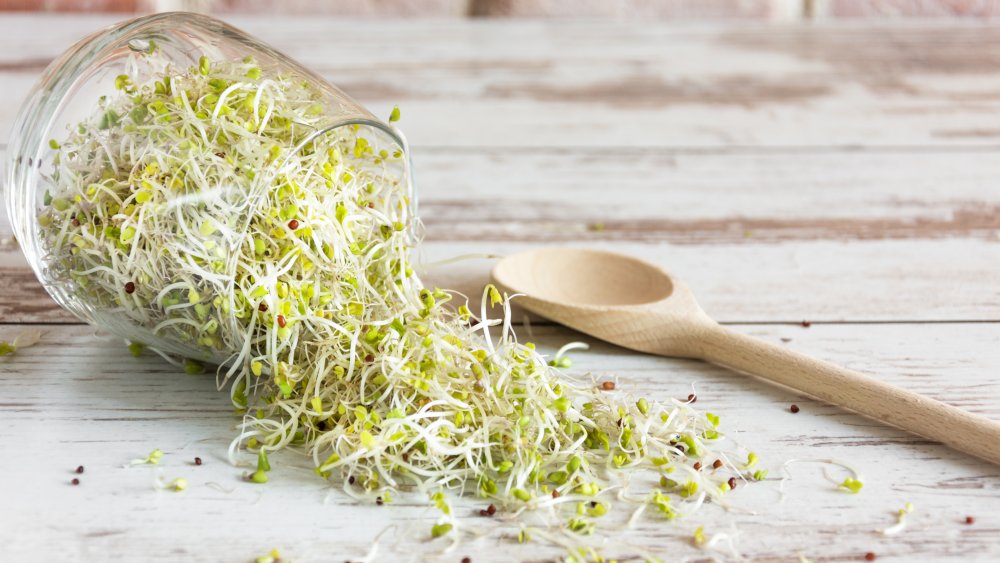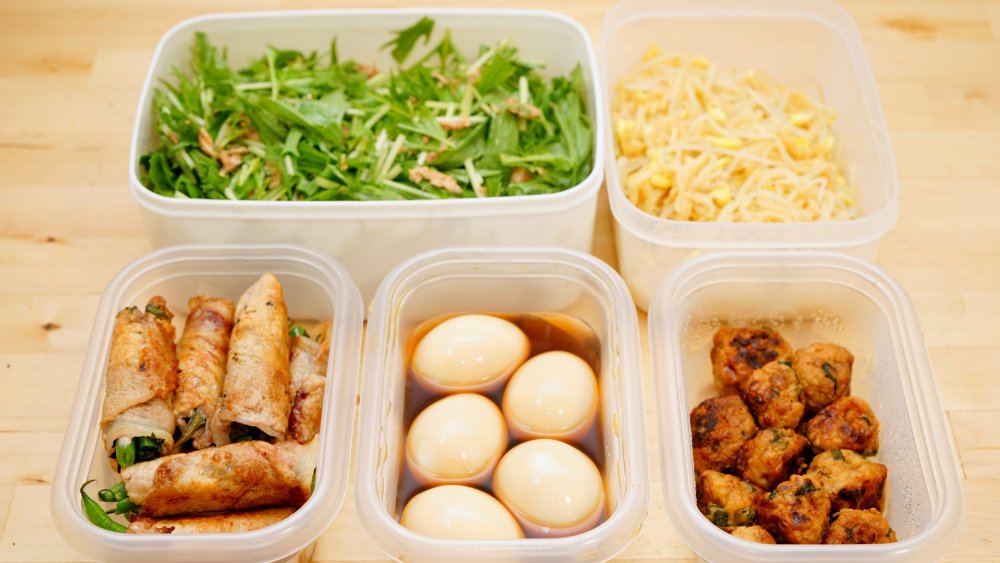Summer Foods You Shouldn't Eat
Ah, summertime — the time we look forward to during the rest of the year. It's a time for backyard barbecues, cookouts, pool parties, and... well, any other excuse for a party you can think of. There's just something about a meal cooked on a grill — whether it's burgers or veggie kabobs, steak or portobello mushrooms — that's just so much better than anything cooked indoors.
But here's the thing: summertime also comes with some dangers. According to the US Department of Agriculture, the number of food poisoning cases peak each and every summer. That's terrible — the last thing you want to do is miss out on a week of fun because you're too sick to move. Why is this? Well, that's part of what we're going to talk about.
We're also going to talk about some foods you should skip for other reasons, whether that's the fact they're bad for you, they might have some long-term consequences, and some might even increase the likelihood you're going to be suffering from a sunburn later. How weird is that?
So, if you want to stay happy, healthy, and comfortably un-sunburned, give these summertime favorites a miss.
Drinks with lime and other citrus ingredients
Nothing goes with a hot summer afternoon quite like an ice-cold margarita, but there's a catch — and it can be quite a serious one. According to Healthline, if you're fixing your drink and splash some of that lime juice on your skin, there's the possibility it's going to react in the sunlight to cause rashes and even a second-degree burn. And, if your skin is wet (or sweaty), it's going to make the reaction even worse. While some people might not even realize there's anything wrong, others can develop open sores that require some serious medical attention.
It's so commonly associated with summertime drinks that it's called margarita burn, but the official name for it is phytophotodermatitis. It happens because lime — and other citrus fruits — contain a chemical called furocoumarin, which is activated by UV rays. So maybe skip the citrus?
And while we're talking about interactions with the sun, here's some more food for thought: according to US News, there are some other summertime food favorites that can make you more sensitive to the sun's effects. Dill, fennel, celery, figs, and parsley can actually make you more susceptible to suffering from a nasty sunburn, so keep that in mind if you're mixing a picnic with a game of horseshoes or badminton.
Deep-fried fair food
There's nothing quite like a good summertime fair, from the rides to the old-school rock bands that you forgot about... until you see them headlining your local state or county venue. Fairs are definitely fun, but there are some fair food stands you should just keep walking past — and we're talking about all that deep-fried goodness.
Sure, it's goodness, but it's also the worst. You might be able to do some justifying with the fact that no one goes to a fair expecting to eat healthy, but honestly, those deep-fried anythings are about the worst you can do.
Let's take a few examples. How about that serving of funnel cake? Delicious, right? And it's so light, it can't be that bad... can it? According to My Fitness Pal, one funnel cake comes with about 760 calories and a shocking 44 grams of fat. Also, you'll need to run for over an hour to work off that many calories, so unless you're planning on running through the fair, you might want to rethink that.
Even the littlest nuggets of deliciousness come with a steep nutritional price. A single deep-fried Oreo has 156 calories and 9 grams of fat — and that's just in one little cookie! Think you can do better by picking something like deep-fried pickles? Not exactly — that's around 174 calories and 40 grams of fat. Don't regret your fair choices!
Potato salad
It sounds like an old cliche: Avoid the potato salad at a backyard BBQ, because that unrefrigerated mayo is likely to make you sick. But that's actually not what's going on here, and it's not why you should avoid the potato salad after all, says NC State University food research Ben Chapman.
Mayo, as it turns out, has enough acid in it that it's actually pretty safe. Store-bought mayo is made that way on purpose, with enough acidic contents to kill pathogens and reduce the potential for spoiling.
The problem, Chapman notes, is that you're adding a ton of other ingredients to the potato salad that have a low acidity, like the potatoes themselves. That's actually what acts to create a breeding ground for bacteria, and the most common kind of bacteria that's found growing on potato salad and making people sick comes from people. Staphylococcus aureus is one of the frequent offenders, and that's often transferred to the salad from peoples' faces. Add in the likelihood that potato salad isn't being kept at a safe temperature of below 41 degrees Fahrenheit, and you have a bacterial playground.
Deviled and hard-boiled eggs
Deviled eggs are amazing, and they're a great little finger food for a party. But if you happen to be at a cookout and see a tray sitting out with eggs for the taking... you might want to rethink this one.
According to the Food Poisoning Bulletin, salmonella is the biggest danger when it comes to deviled or hard-boiled eggs. It can basically live anywhere in or on the egg, and it's impossible to tell what's contaminated and what's not. An egg that's covered with salmonella won't look or smell any different, but it will leave you with a fever, cramps, and painful gastrointestinal distress, with the most extreme cases requiring hospitalization and yes, there's a chance it can be deadly.
And the danger only increases in the summer, particularly because of the temperature. When eggs are kept at 40 degrees Fahrenheit or above, that makes it even more likely salmonella is going to multiply. And even if you buy your eggs already hard-boiled, there's still a chance of food poisoning. In 2019, The Hill reported on a listeria outbreak that had killed at least one person and sickened others, which was traced back to commercially produced hard-boiled eggs. Bottom line? Make your deviled eggs at home, and keep them in the fridge.
Anything with raw tomatoes
Tomatoes taste great and they're good for you... so what could possibly go wrong? A lot, says the University of Minnesota's Center for Infectious Disease Research and Policy.
They found that between 1990 and 2007, raw tomatoes had caused more than 79,000 cases of food poisoning. Outbreaks were linked to whole and cut tomatoes, and they say that the culprit is usually salmonella. Investigation by food safety authorities in some of the outbreaks found contamination at the source: in irrigation pond water. Then, when they're sliced without being properly cleaned, that can transfer the bacteria to the inside of the tomatoes — which just happens to be almost perfect for the bacteria to multiply. And that's also the reason you shouldn't buy damaged tomatoes — the contamination can very easily grow throughout.
Given that raw tomatoes so frequently show up in things like salads and on burgers, it's no wonder they're linked to so many cases of food poisoning. So, as good as that salad might look, if it has raw tomatoes, just skip it... and definitely don't put one on your hamburger.
Corn on the cob
Corn has something of a reputation as the least healthy among the vegetable world, but Healthline says that's not really warranted. It's high in fiber, vitamins, and minerals, and it's low in fat. It is high in starch — which can impact your blood sugar levels, but overall, it's pretty good stuff.
So... why shouldn't you reach for an ear of the corn on the cob, right off the grill?
According to Prevention, corn on the cob is regularly featured on dentists' lists of foods to avoid. If you have fillings or sealants, you're running the risk of loosening or cracking them. Anyone with orthodontics — like braces — can definitely do some terrible damage, and if you have dentures, you'd like to keep them seated where they are, right? Corn on the cob isn't going to help you do that.
Infinity Dental Associates has corn on the cob on their top list of foods to avoid, and say that even if you don't permanently damage some of the things you've got in your mouth, you're still going to need to brush and floss after eating it. And did you really bring your toothbrush and floss to the party? Who wants to go through the afternoon with corn wedged into your gums — especially when you just know you're going to suffer the consequences later?
Oysters and other kinds of shellfish
It might be tempting to pull up a chair when you see raw oysters on the picnic table, but according to the Centers for Disease Control and Prevention, you might want to think twice.
Raw oysters, they say, might not just ruin your afternoon, but your entire summer. That's because eating raw oysters (and other types of shellfish) is linked to an illness called vibriosis — and it's not uncommon. Around 80,000 people get it every year, and it's nasty stuff: symptoms range from mild gastrointestinal distress to infections in the bloodstream, skin lesions, and sometimes, limb amputation becomes necessary.
Proper cooking will get rid of contamination, but raw oysters — particularly those eaten between May and October — should be a no-go. The warmer water temperatures present during these months increases the likelihood that the naturally-occurring bacteria will be present in the waters the oysters come from, and oysters — which feed by constantly cycling water through their shells — can easily build up a high and potentially dangerous concentration of said bacteria.
Frozen drinks
Say it ain't so! Sadly, it is — frozen cocktails are among the most unhealthy choices you can make at a summer party, and we're not talking about the alcohol content here.
When Liquor.com did their list of most unhealthy cocktails, there were a lot of summertime favorites on it, including daiquiris, mai tais, pina coladas, and margaritas. What's going on here?
Part of the problem is that a lot of the time, they're made with pre-made mixes that are just downright terrible for you. They're loaded with sugar and empty calories, and that's not all. Given that these fun and frosty drinks are often served in over-sized glasses, you might not even realize just what you're drinking. A margarita made from mix and served in a giant glass can easily contain upwards of 500 calories and 50 grams of sugar, while the coconut cream and milk in a pina colada adds a ton of fat, too — so much that a single drink can be worse than eating a Big Mac.
Now, consider this: if you're hanging out at the pool drinking frozen daiquiris... are you only having one? If you must partake, give the mix a miss and make them from scratch. They might be more work, but they'll taste better and your waistline will thank you.
Super-charred meat from the grill
Here's some bad news for meat-lovers: research has shown that all those super-seared steaks on the grill that you love so much absolutely don't love you back.
In 2010, a study from Vanderbilt University found (via Time) that regular consumption of well-done meat increases a person's intake of something called heterocyclic aromatic amines (HAAs). There's more bad news, too: meat cooked over a grill also contains another type of chemical, called polycyclic aromatic hydrocarbons, or PAHs. PAHs form when all the juices and fats that drip out of meat and land directly onto a fire — you know, what happens when you're grilling.
Both of those chemicals are metabolized by the enzymes present in our bodies, but the byproducts of that process have been linked to causing both cancer and damage to our DNA. While researchers stress that every person's unique genetic makeup means that these byproducts are going to affect them differently — and may or may not do some serious damage — well, how well do you know your DNA? Is it better to be safe than sorry?
Hot dogs
When Time asked a panel of experts whether or not a hot dog was a good choice, the answer was an overwhelming "No."
Why? A few reasons. Hot dogs are about as highly processed as you can get, and processed meats have been linked with an increased risk for type 2 diabetes. Then, factor in the inevitably high nitrate content of hot dogs, and you have one more reason to avoid them. According to University of Southern California cancer epidemiologist Mariana Stern, it doesn't matter where nitrates come from, our bodies still turn them into nitrites, and those are linked to an increased risk of various cancers.
What about hot dogs that advertise themselves as without "added nitrites?" Are they healthier? Oscar Mayer says (via CBS News) that yes, they are... but researchers from the World Health Organization are less quick to make that kind of claim.
If you're still not sure about hot dogs, here's a fun little bit of trivia. When the Dream & Nightmare Laboratory of Montreal conducted a study to see if foods really do impact the quality of your sleep and the content of your dreams, they found that 12.5 percent of study participants named hot dogs as nightmare fuel. Who would have thought?
Snow cones and shaved ice
If you're looking for a quick way to cool down without worrying about all the fat and calories that come with a pint of Ben & Jerry's, you might opt for a snow cone or some shaved ice. But experts say these options are definitely not better than ice cream, and you might be surprised as to why some say you should never queue up for a snow cone.
Dentists from Pediatric Dental Care say that shaved ice and snow cones can re-freeze, and be hiding massive chunks of ice — and that can lead to a broken or chipped tooth, especially for children.
Then, we need to talk about the sugar content. The American Heart Association says that women should limit their added sugar intake to less than 25 grams per day, and men should limit theirs to 36 grams. But LiveStrong says that snow cone syrup is going to put a serious dent in your daily limits: 2 ounces of syrup contains 18 grams of sugar. And be honest: you get more than just one flavor, right? Add in the fact that you're getting no actual nutritional benefits from that snow cone, and this one should be a hard pass.
Sprouts
Half the fun of sandwiches, burgers, and hot dogs are the toppings, but there's one topping that you'll definitely want to skip. Sprouts might be incredibly good for you, but according to LiveScience, they're also really, really good at carrying bacteria.
They've been linked with dozens of food poisoning outbreaks, sickened thousands, and we're not just talking about a particular kind of sprouts, we're talking about all sprouts. Alfalfa, clover, mung bean... they're all potentially dangerous, and they're linked to both salmonella and listeria.
The problem, experts say, is how they're grown. Sprouts, well, sprout when they're kept in a warm, humid place — which is precisely the same kind of environment that bacteria thrives in, too. If seeds have bacteria on them when they're harvested, that bacteria can stay there for months while the seed stays dormant. Then, seeds sprout, bacteria multiplies, and then they're eaten by people who suspect they're making a healthy choice by opting for these as a topping. Not so much, sadly.
Leftovers
Food waste is a huge problem, and no one likes to see perfectly good leftovers go in the garbage. But if you're at, say, your neighbor's for a cookout and they're nice enough to package up some leftover goodies for you, well... you might not want to actually eat them, especially if you don't know how long they were sitting outside or on the kitchen counter.
According to the Centers for Disease Control and Prevention, the window of time for leaving food out in the summertime and having it still safe to eat is very short: if it's over 90 degrees Fahrenheit, it's just one hour. If it's cooler, food should still only be outside of the fridge for two hours — otherwise, bacteria is going to multiply incredibly quickly.
There's something else to consider, too: how was the food prepped? If you're at a campground or state park, for example, keeping everything clean and sanitary can be tough. Even food you might not suspect — those nachos, maybe, or that fruit pizza — could be susceptible to cross-contamination. In some cases, you might want to just toss it instead of risking your health.
